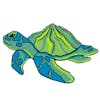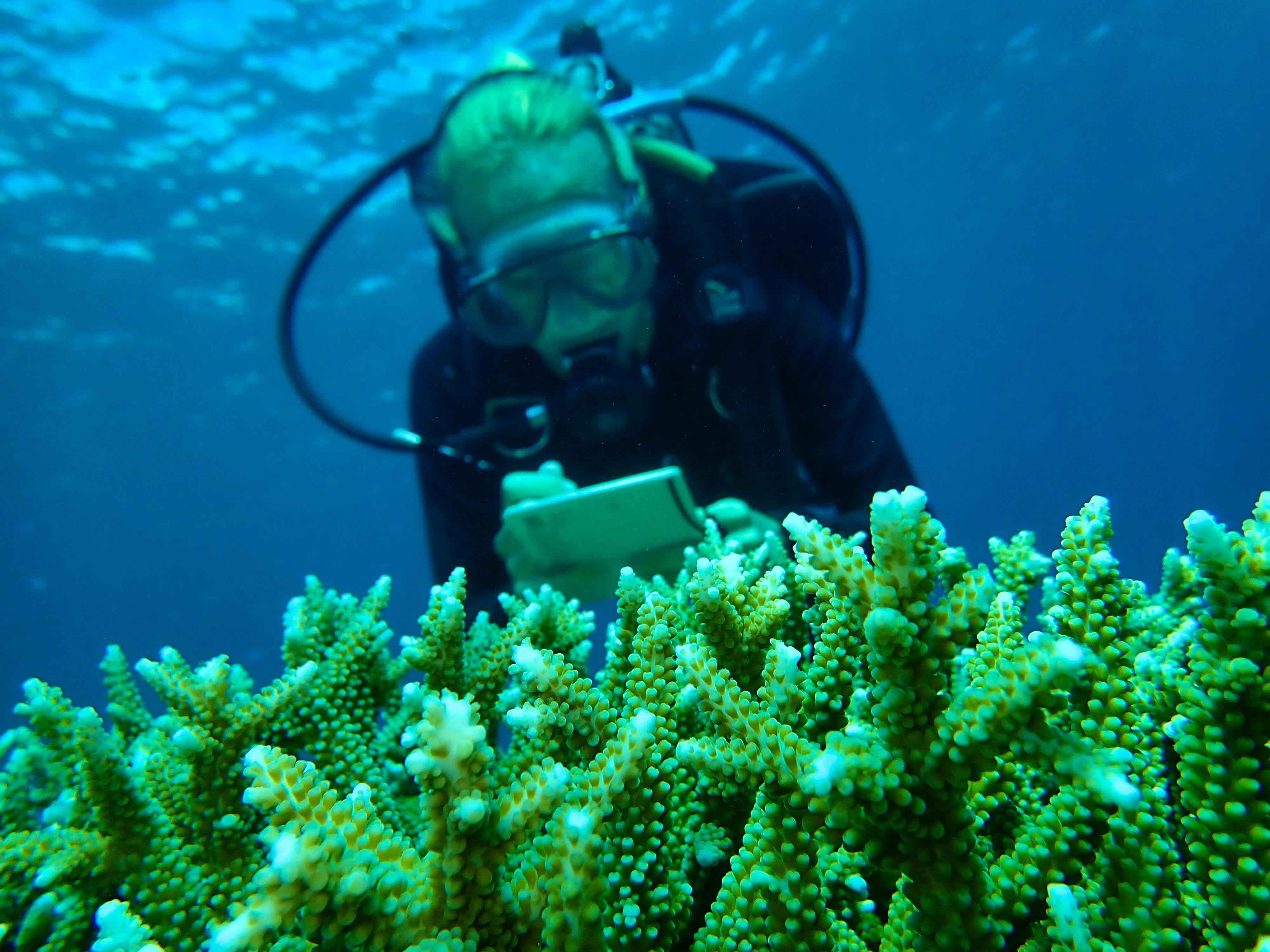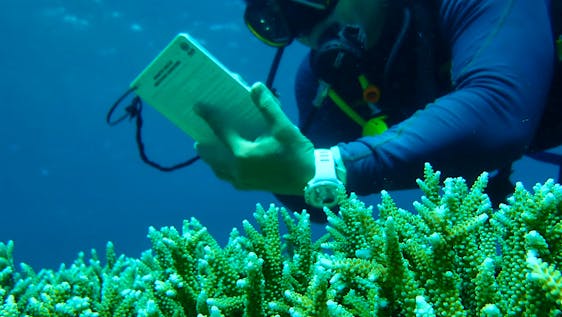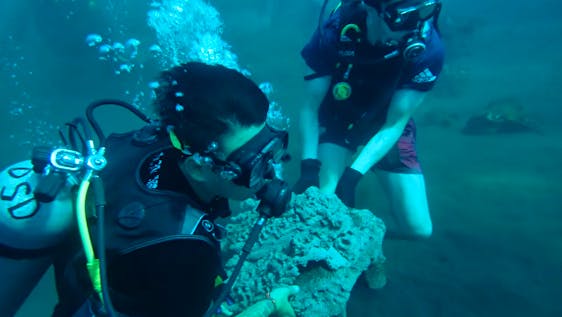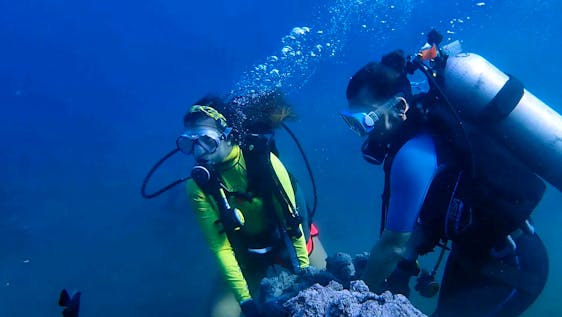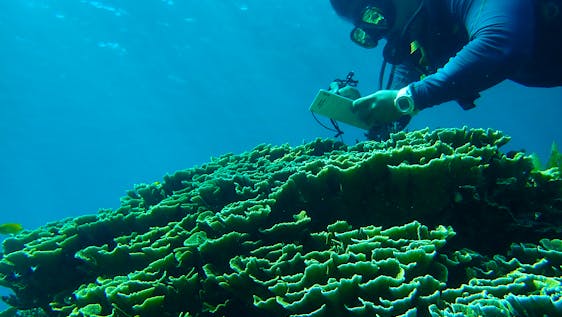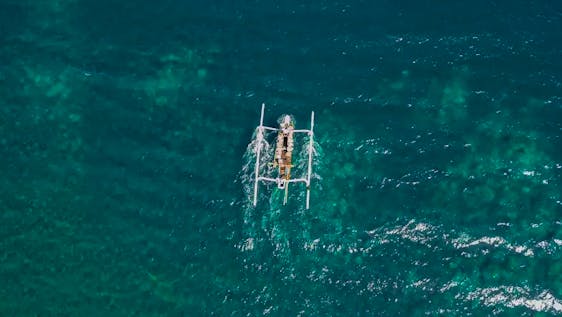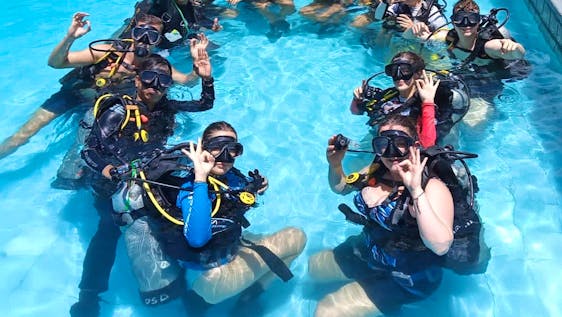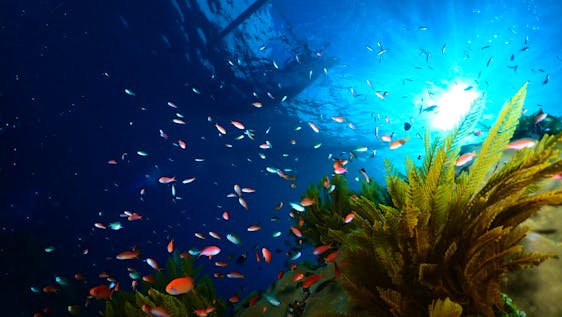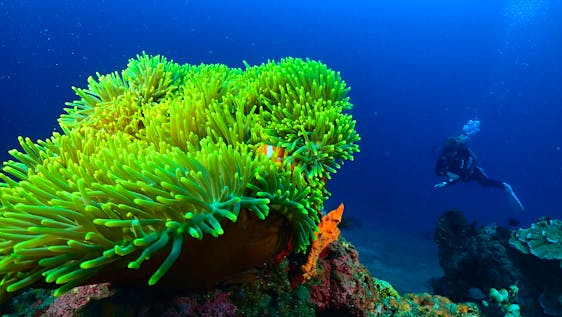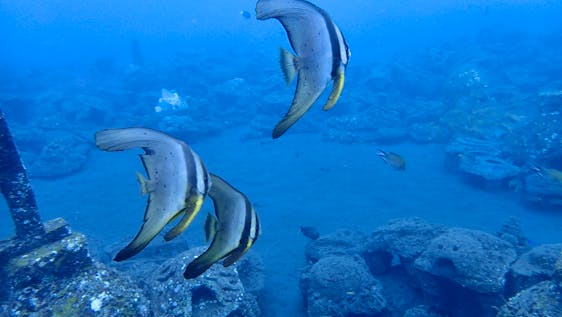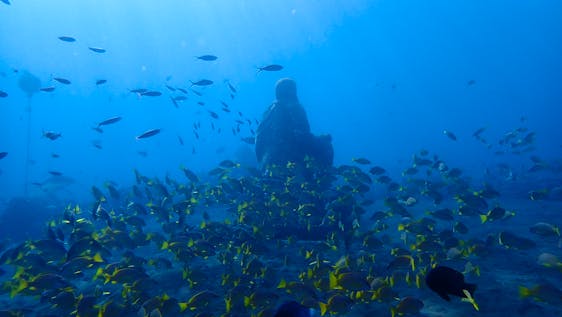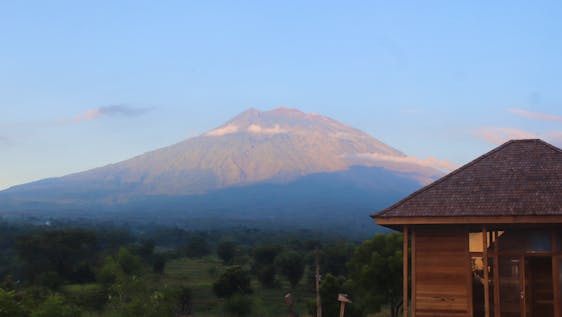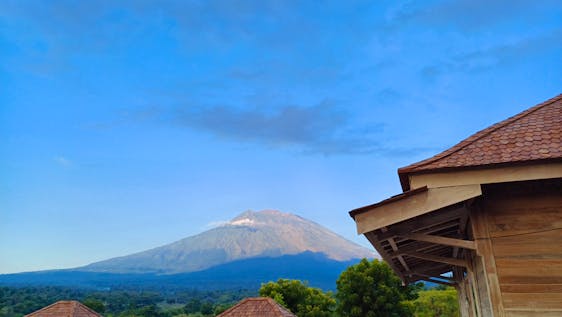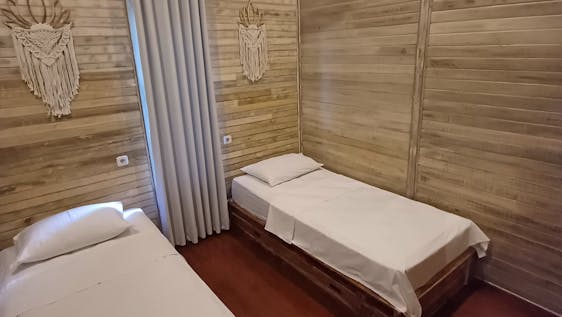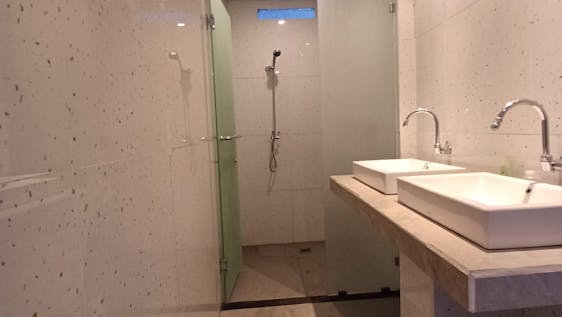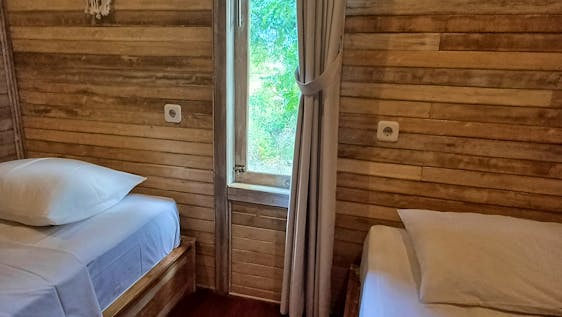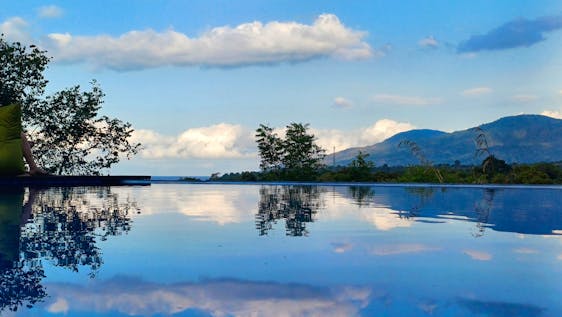We first started empowering local communities to conserve the coral reefs in our village, inspiring them to champion and protect their natural environment. Our aim is to spread this message and motivate others all around the globe to respect and conserve the natural world wherever they go. With each dive we preach environmentally safe dive practices, passing them on to both newer and experienced divers. No doubt these reef conscious divers will travel the world to new, amazing dive sites, remembering what they learned with us. With every dive they will be an exemplary role model diver and pass on these environmentally safe dive practices to their dive buddies, other divers as well as dive professionals. People inspired by the ocean not only change their dive practices, but also often change their mindset and lifestyle habits. Witnessing the scale of plastic pollution in the ocean has made us and others seriously consider the choices they make to reduce their single use plastic consumption.
Diving in a coral reef can be one of the most visually stunning, eye opening experiences and for us that’s a good enough reason to want to conserve them. But coral reefs are also incredibly important for the ecosystems that they support and the general health of the world itself. Yet, despite their importance, 75% of reefs worldwide are threatened by human activities as well as climate change and ocean acidification. It is projected that (if we continue as normal) 90% of coral reefs will be threatened by 2030. Each year more and more people travel to tropical beaches and if the unsustainable business practices and tourist behaviours continue then coral reefs will be under even greater pressure.
As part of this volunteering program we empower local communities to construct and deploy artificial reefs in four areas along the North East coast of Bali where the natural reef communities have been lost. Artificial reefs help to restore areas of exploited coral reefs by allowing coral larvae to naturally settle and grow in the sandy areas where they otherwise not be able to. These artificial reefs are also designed to incorporate complex habitats for fish and can quickly turn a barren underwater desert into a bustling reef fish community once more.
Volunteers are essential to our reef restoration effort as we dive twice at each of the four restoration sites once per week to deploy the artificial reefs alongside members of the local community. In the mornings, volunteers in their dive buddy teams arrange the artificial reef structures into the optimum formation to maximise the habitat available for fish recruiting to the new reef. After the deployment dive we take a short surface interval before our second dive to survey the coral and fish communities developing on the artificial reef aggregations. In the afternoon, we debrief and evaluate the results of our reef monitoring, working together to develop our coral and fish ID skills as a team. The new data from our reef monitoring program is inputted to our database and shared with local authorities and interested researchers.
We aim to change the way the general public sees the ocean, promoting sustainable practices to ensure that everyone can experience the wondrous majesty of the oceans now and in the future. In everything we do, we consciously think about how we can avoid any negative impact on the environment. We do this in all aspects, from how we plan and manage dives and divers to the products and food we use in our accommodation and in the kitchens.
